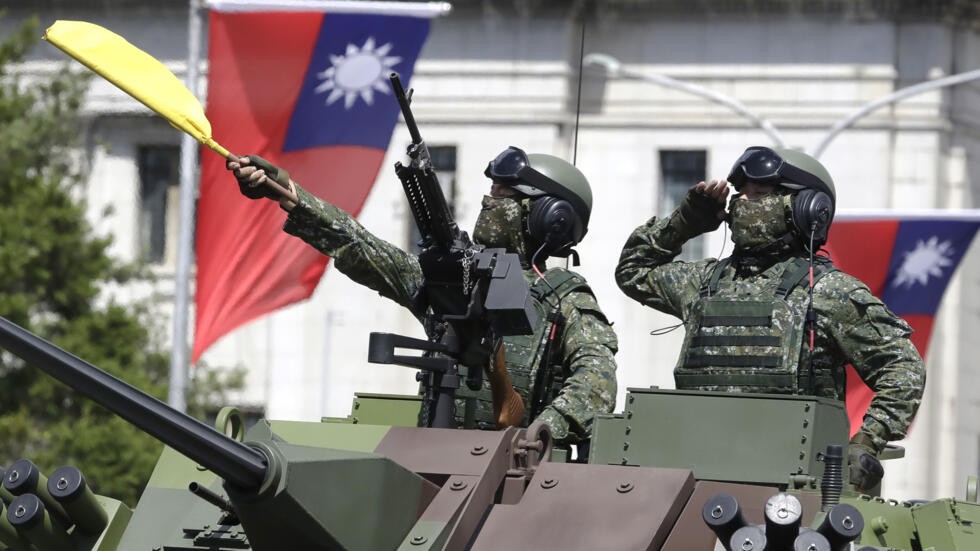The Great Dissent: Chinese citizens unwilling to fight war over Taiwan
The prevailing discontent among the populace of China toward their government has become increasingly evident through recent incidents unfolding within the nation. Individuals are utilizing social media platforms as a conduit to express their grievances and frustrations. However, the government exercises stringent surveillance over these digital channels, promptly censoring any content that challenges its authority or policies. Remarkably, this wave of dissent has reached such proportions that even Communist Party officials find themselves powerless to quell.
In a recent incident that reverberated across China’s social media landscape, a television reporter was seen engaged with a man hailing from a rural area. The pivotal question posed was whether he would consider enlisting in the army during the nation’s challenging times. The man’s response, delivered during the interview, encapsulated a sentiment that resonates with many: “I bear no debt to the government. Consequently, in times of heightened tension and war, neither I nor my son shall heed the call to military service.”
This candid expression of non-allegiance underscores the prevailing undercurrents of discontent and individual agency within a society where loyalty to the state has traditionally been paramount. As the nation grapples with multifaceted challenges, this rural perspective serves as a poignant reminder that citizenship carries nuanced obligations—one that transcends mere duty and delves into the complex interplay of personal convictions and national allegiance. There is a feeling that in times of peace and tranquillity, the government remains indifferent to the plight of the rural populace, offering no tangible benefits. Forgotten and overshadowed by urban counterparts, the overlooked populace, witness privileges bestowed upon city dwellers and Party elites. Yet, when national exigency arises, the same government pins its hopes on rural folks, invoking the mantle of duty.
In the wake of the viral interview on social media, impassioned discussions have ignited among the populace. The crux of the matter revolves around three salient points: First – Complexities of Modern Warfare Skills: In an era where warfare transcends traditional battlefields, technological prowess is paramount. Soldiers must master cutting-edge techniques and employ them judiciously. However, within the ranks of the Chinese army, a disconcerting reality persists: a significant contingent lacks the requisite technical proficiency. This deficiency has sown seeds of disillusionment among many servicemen. As the discourse unfolds, it underscores the critical intersection of national security, technological preparedness, and individual aspirations—a confluence that demands urgent attention from policymakers and military leadership alike. Within the ranks of China’s military, a palpable divide exists—one shaped by contrasting attitudes of senior officers toward soldiers hailing from urban centers versus those from rural backgrounds. This stark discrepancy in treatment has fostered an atmosphere of profound disillusionment among the enlisted personnel. Second – As the specter of potential conflict looms, citizens grapple with pressing questions concerning loan repayment. The recent COVID-19 pandemic has exerted immense financial strain on China’s populace, rendering many incapable of meeting their debt obligations. Consequently, a surge in legal proceedings has inundated the courts, underscoring the delicate balance between national exigency and individual financial burdens. And third – in the prevailing landscape, individuals grapple with financial scarcity, compelled to engage in multifarious labor merely to sustain their livelihoods.
Recent events in China have sparked fervent discussions among the general public, drawing connections to the pivotal Communist Party of China (CPC) meeting held on March 6. During this gathering, President Xi Jinping emphasized the imperative of forging a robust military and staunchly opposing Taiwan’s independence, advocating instead for its peaceful reunification with mainland China. Notably, the CPC issued a directive: ‘by 2027, Taiwan must be integrated into China’s fold, even if necessitating force’.
This pronouncement has left ordinary citizens disillusioned. They perceive a dissonance between the government’s neglect during times of crisis and its current call for enlistment in a potential war campaign. The CPC’s credibility stands challenged, as it seeks to mobilize these very individuals for national defense.
In a poignant act of dissent, a netizen recently resurfaced a 2017 video on Sina Weibo—a social media platform—where the South Korean Defense Ministry outlined plans to fortify its defense capabilities. This juxtaposition serves as a stark reminder of the complexities inherent in safeguarding national interests and the delicate balance between leadership and citizenry.
The deployment of the American Terminal High Altitude Area Defense (THAAD) missile system has also stirred significant apprehension. A video surfaced, revealing that the THAAD system, positioned along the South Korean border in Sangju, would be operational within the next month or two. This development heightened China’s unease, given America’s proximity to its borders. The Communist Party, cognizant of security imperatives, pledged necessary measures. Subsequently, tensions escalated between South Korea and China, underscoring the delicate balance of regional interests and strategic maneuvering.
CPC is grappled with a multifaceted crisis. Simultaneously, it seeks to advance its own agenda while sacrificing the well-being of its citizens. Meanwhile, public anger mounts due to governmental failures, rising unemployment, and pervasive uncertainty. If the CPC fails to address these pressing issues promptly, it risks igniting a formidable internal movement against its rule.












